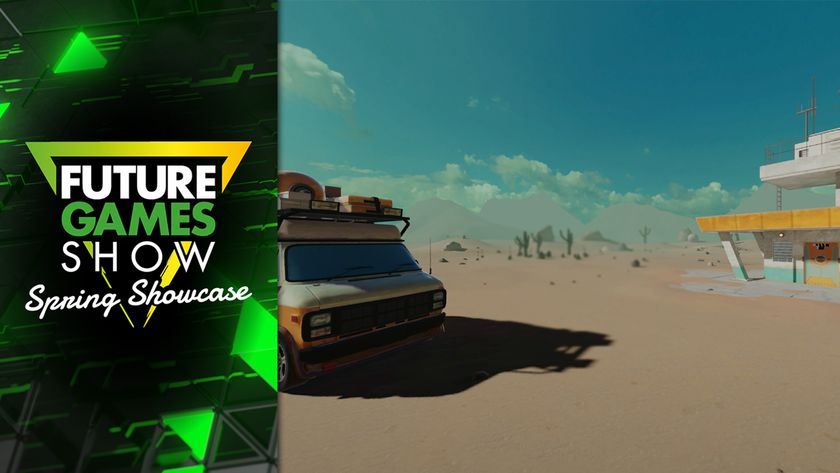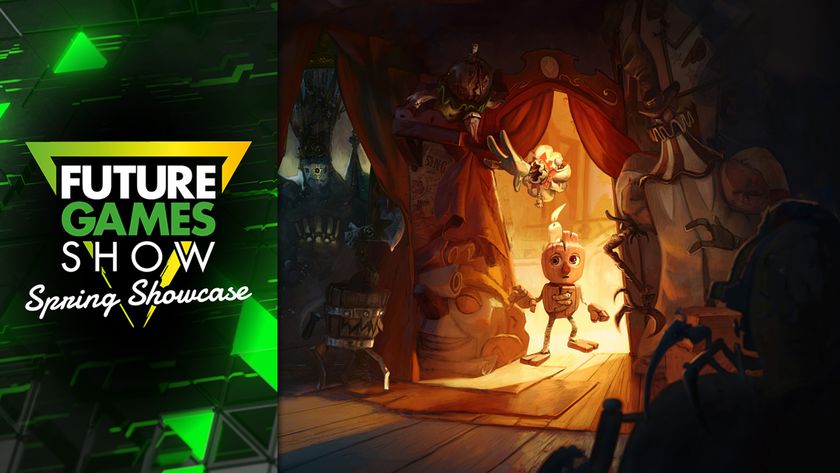Viewfinder is a stunning, intelligent mix of Portal and What Remains of Edith Finch
Hands-on | Viewfinder is a quiet underdog for indie Game of the Year
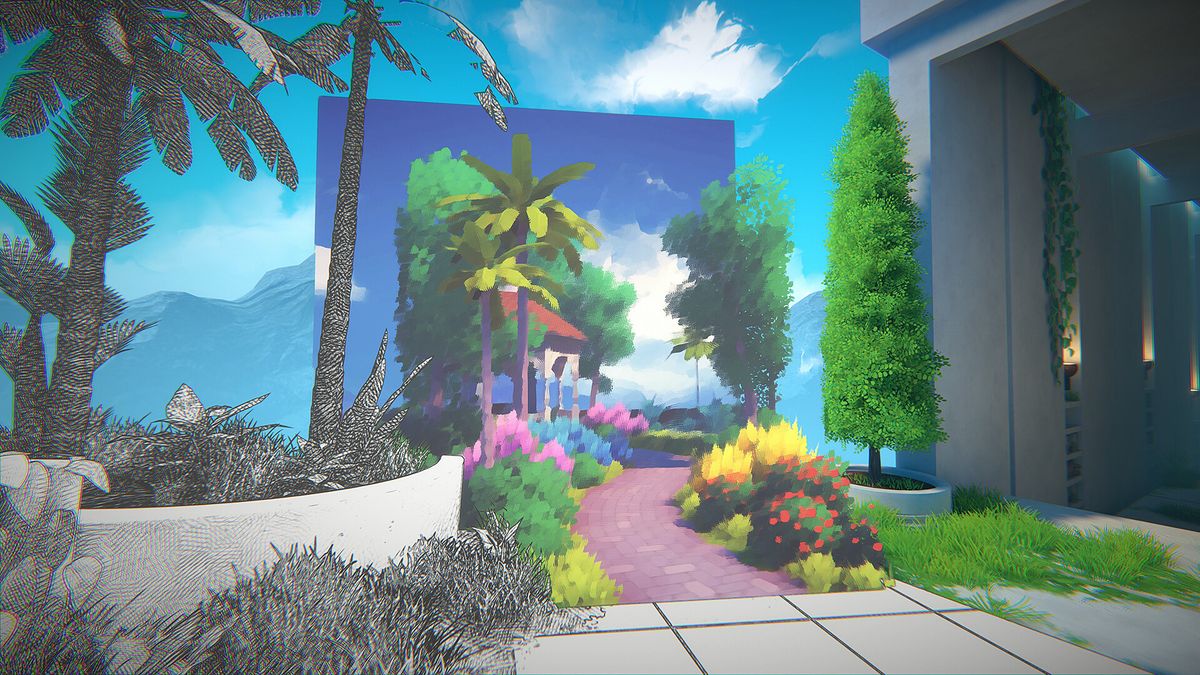
A picture paints a thousand words, so goes the age-old adage. In Viewfinder, the incoming first-person puzzle adventure game from Sad Owl Studios and Thunderful, a picture creates a thousand paths.
"Challenge perception, and reshape the world around you with an instant camera," reads the game's Steam page blurb, which in motion sees you grabbing Polaroid-style snaps scattered around a series of gorgeous and vibrant levels, holding them aloft, and using them to access new areas and twist reality to your will. It is pure brain-teasing, head-scratching, mind-melting fun, that has you cursing aloud in defeat one moment, and punching the air in success the next.
Games like Zelda: Tears of the Kingdom, Diablo 4, the Resident Evil 4 remake, and Dead Space will inevitably commandeer the Game of the Year conversation in the coming months, and they deserve it. But if we're thinking of smaller, independently-made ventures that are smart and unique, then I reckon Viewfinder should be right there at the top of the table too.
Shake it up

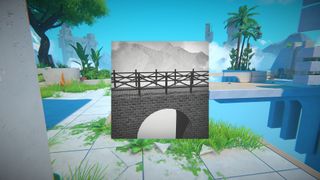
Viewfinder is basically Portal with photos and finally releases this year
Like the majority of games of this ilk, Viewfinder starts out straightforward before becoming increasingly complicated. You grab a photograph, hold it up, click it into place, and walk through it. Aided by narrative-light items dotted around the place, the aim of each level is to make your way between two points, and exit via a teleporter at the level's end. So far, so indie puzzler, right?
Things quickly get more complicated, though, when the end-of-level teleporters require surplus battery packs, each of which is hidden elsewhere in the contained space. A photograph of an archway, then, may be used to circumvent a locked gate. A seemingly innocuous snap of a high-rise building might be turned on its side and used as a bridge to reach higher ground. An Insta-friendly shot of a sunrise may even be used to create a void in a building, removing a wall and allowing access to an otherwise enclosed space. Thinking outside of the box, sometimes literally, quickly becomes essential as you nip and tuck and tear up the world around you in your bid to move onto the next zone.
With these eureka moments featuring so front-and-center in everything Viewfinder does, it's actually difficult to discuss what makes the game so special without ruining it. You could listen to me, or watch someone else work through each set-piece in turn, but this is a game that demands first-hand trial and error (so many errors) to be fully-appreciated. I was wowed so many times by Viewfinder's intuitive, perspective-shifting puzzle work in its first half-hour alone, that I can't remember the last time a game made my jaw hit the floor so freely. The likes of Portal and What Remains of Edith Finch are good headline examples with signposting in mind, but the comparisons are justified because the relentlessness with which Viewfinder keeps you on your toes is delightful – especially given how chilled out the game otherwise is as a whole.
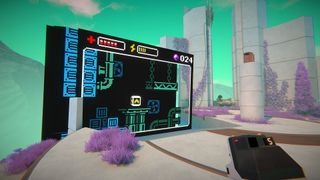
At one stage early on, you wind up stepping into works of art instead of still photographs. One is sketched with rough pen-stroke edges; the next is a Monet-esque impressionist composition. A cartoon landscape that apes the style of The Simpsons follows; before you wade into a pencil-drawn world that a preschool child would be proud of. At another juncture, you find yourself entering the same photo over and over in a sequence that echoes the late, esteemed graphic artist M.C. Escher; while another level has you photocopying several stills to reach far off platforms.
Sign up to the 12DOVE Newsletter
Weekly digests, tales from the communities you love, and more
Failure at any point – falling into the surrounding abyss, or accidentally wiping out a teleporter are just some of the roadblocks you might face – can be reversed with the click of a button, activating a Braid-style rewind mechanic that lets you retry any specific set-piece you desire. And while this primarily acts as a safety net, it also encourages you to get creative, experimenting with the effects laying certain photos down in certain ways can impact the world around you. In my experience, messing about on purpose often nudged me towards that sought-after eureka moment – where I'd get just close enough to a solution by accident, that I could then get there on purpose with my next refined try.
And so with all of that, all that remains for me is to recommend you get hands-on with Viewfinder yourself whenever you can. It's still sitting with an ambiguous "2023" release date for now, but will land on PC via Steam, and PS5 and PS4 when it's ready. Viewfinder is cool, smart, and thought-provoking in all the right ways. Oh, and there's a wee Scottish cat who offers you guidance along the way. I can't recommend it enough.
Here are some of the best upcoming indie games for 2023 and beyond

Joe Donnelly is a sports editor from Glasgow and former features editor at 12DOVE. A mental health advocate, Joe has written about video games and mental health for The Guardian, New Statesman, VICE, PC Gamer and many more, and believes the interactive nature of video games makes them uniquely placed to educate and inform. His book Checkpoint considers the complex intersections of video games and mental health, and was shortlisted for Scotland's National Book of the Year for non-fiction in 2021. As familiar with the streets of Los Santos as he is the west of Scotland, Joe can often be found living his best and worst lives in GTA Online and its PC role-playing scene.
